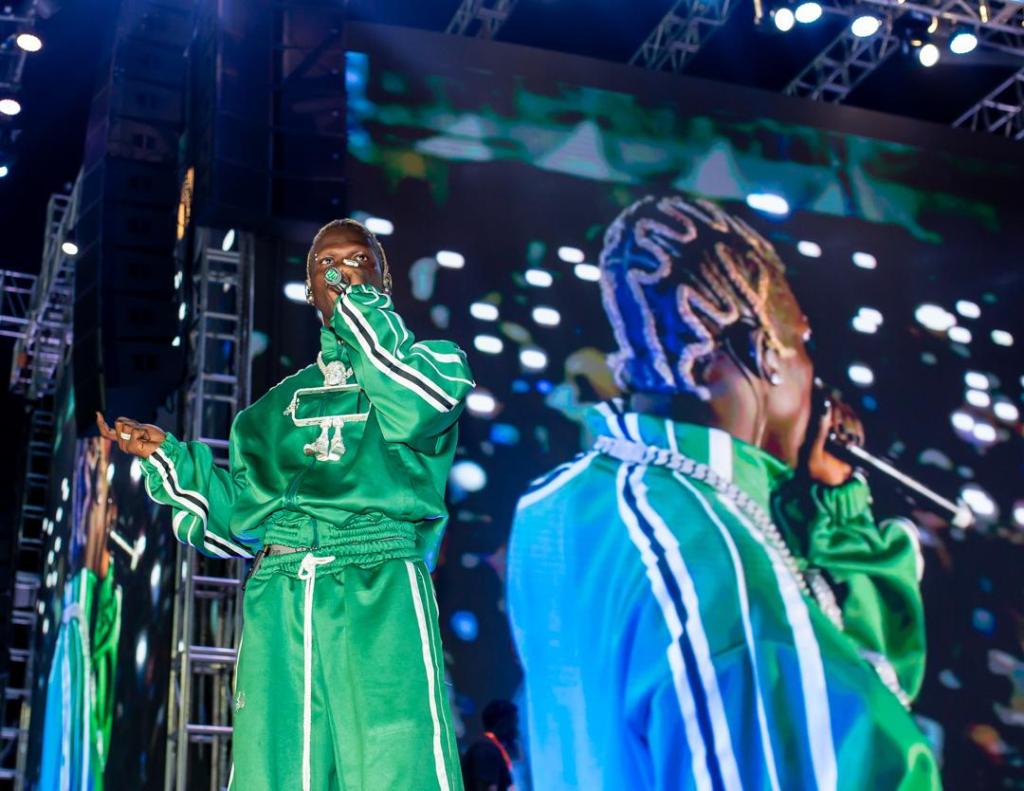
As Seyi Vibez trotted around the stage performing his hit song Shaolin, the crowd roared fanatically. He wore a white tank top, baggy jorts, and white sneakers, which starkly contrasted the bohemian outfits of the twelve or so dancers trailing him. With their spiky hair and dust brown baggy outfits they could as well have been actors on the set of a film set in the Stone Age. In the many drone clips of the event circulating on social media, we can see the crowd—a sprawling sea of tiny white dots—bouncing in concert to the tremulous cadence of the song. As they dance and scream and chant, we feel, palpably, the mix of excitement and frisson that enveloped the space on that cold windy night at the Tafawa Balewa Stadium.
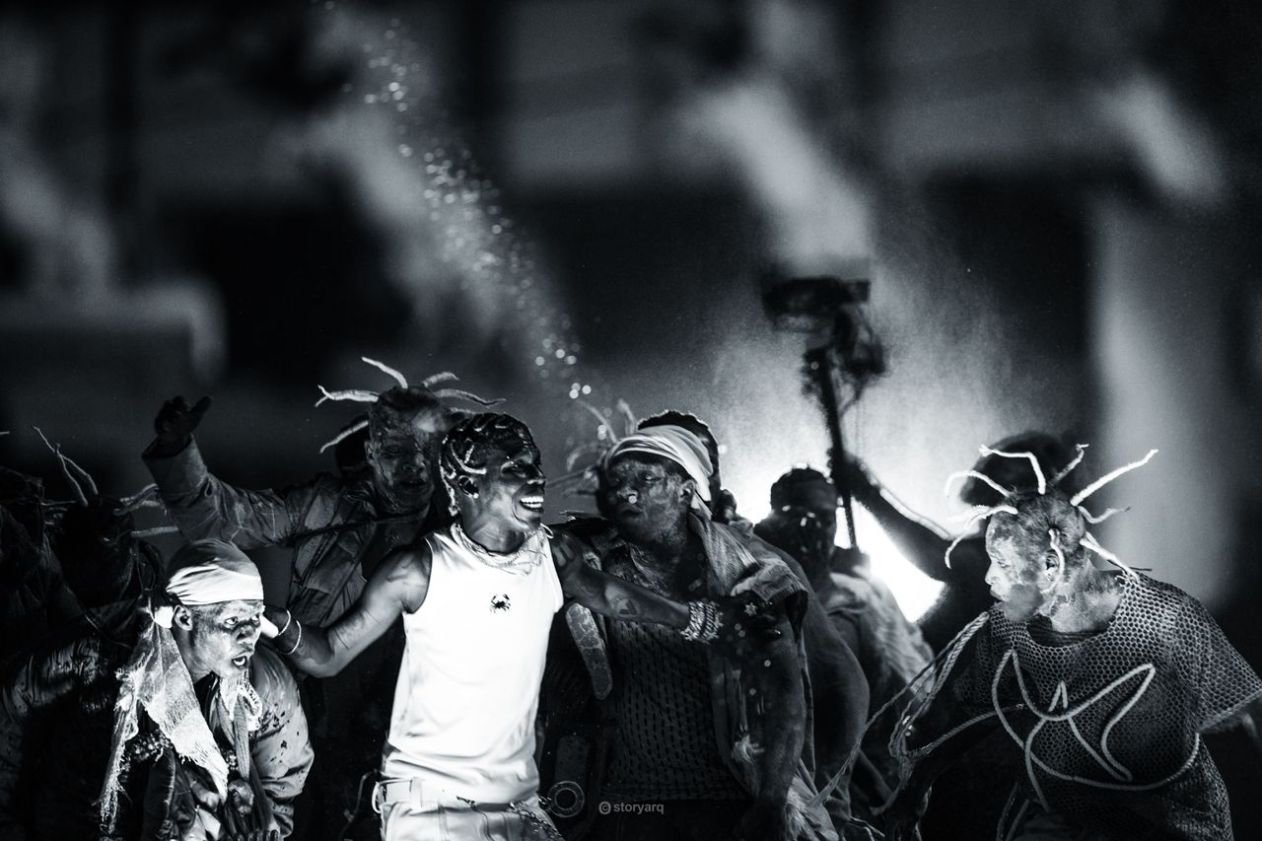
Hope Egbe, the show caller for the concert, however, experienced that moment differently. While she felt one with the sense of awe that suffused the space, she also felt deep in her chest an implacable sense of anxiety. Her job involved coordinating all the aspects of the show to fit with her vision, much like a conductor strings together the different parts of an orchestra to elicit a desired effect in the audience. As Egbe split herself between the sound engineer, the director of lighting and the screen guy, she felt nervousness form an even denser ball in her chest. The job of a show caller leaves very little room for error. The slightest bit of error, say an abrupt increase in the volume, or the screens transitioning out of sync, can sour the audience on what would otherwise have been a great show. But her apprehension stemmed from an entirely different reason.
Stretching back to 2023, Egbe and the rest of Strike Force, a show production company, have executed some of the biggest music concerts in the country. In January 2023, they organized BurnaBoy’s Love Damini concert which was held at the Eko Energy City. Last year, they executed Rema’s much talked about homecoming concert at the 20,000 capacity Samuel Ogbemudia Stadium in Benin City, months after putting together Asake’s new year show at Sol Beach, Oniru. They also handled Rema’s Lagos and Benin concerts that year; and last year’s edition of the Greater Lagos Countdown—an annual music festival organized by the Lagos State government to celebrate the start of a new year—which had on its roster artists like Olamide, Wizkid, Burna Boy, Seyi Vibez, BNXN, Tiwa Savage and Adekunle Gold.
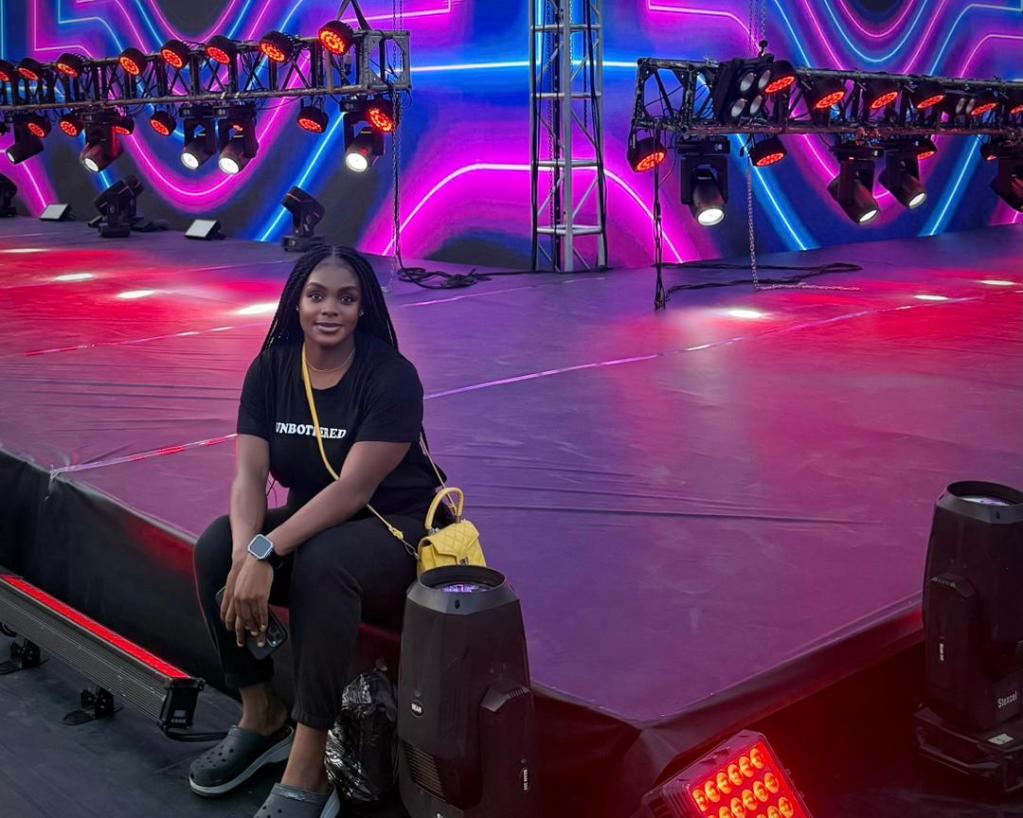
Despite the confidence earned from working on some of the biggest stages in the country, she could hardly keep her anxiety at bay as she conducted the stage with the skillfulness of a ventriloquist. The reason? For Seyi Vibez’ TBS show, they were trying out an entirely new set up. “This was like an experiment for us because we just got new screens and equipment,” she tells me on a warm afternoon. “We wanted to do something different from what we had done before, and that was when we arrived at the idea of the 360 stage—it has never been done in Lagos.”
As the show progressed, everyone on the team “clicked into perfect rhythm,” she tells me. “The energy from the stage and the crowd was so electric, I couldn’t help but scream myself.” At some point in the show, after seeing the remarkable output on the screens and feeling euphoria that crackled in the atmosphere that night, the show producer ran to the part of the stage where Egbe and her team were set up and began screaming “Best team in the world!” Hope in turn, overcome by happiness, jumped around in excitement.
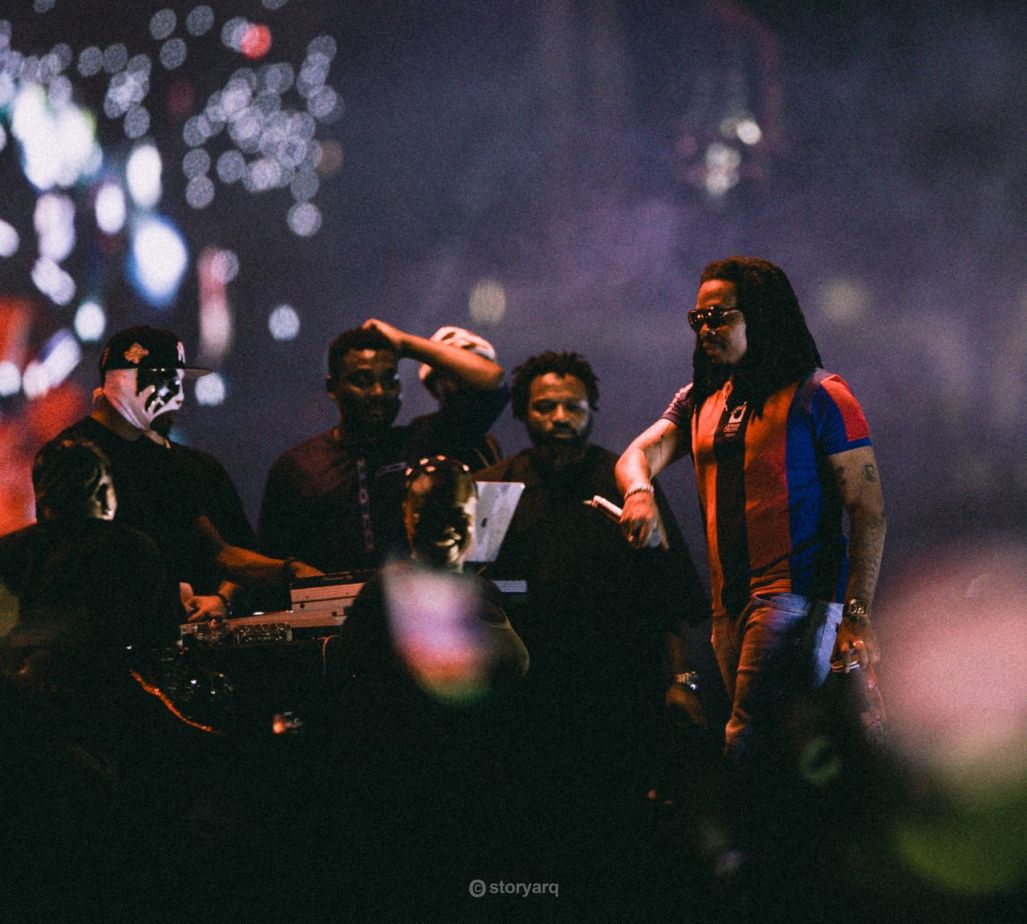
Anyone who is even moderately familiar with the Afrobeats knows that starting in the late 2010s, the period in which the Afrobeats to the World movement started to take on a blistering velocity, concert culture in Nigeria precipitously dwindled. Even as we watched our biggest music stars, Afrobeats’ vanguard, deliver electric performances on the biggest international stages, live performances slowly began to dry up. At some point, the only hope of watching these artists who relentlessly toured Europe and North America during the year perform in Nigeria was in December.
Afrobeats global ascent only gives one half of the picture. As Afrobeats began to make inroads into foreign markets, the Nigerian economy began to face an unremitting blitz of economic headwinds. Inflation ballooned implacably, as did the exchange rate. “With inflation and the cost of living crisis at historic levels, most Nigerians simply cannot afford to shell out the amount of money, in ticket fees, that these shows require,” I observe in a 2024 article for Culture Custodian. These factors, amongst others, made hosting concerts in the country particularly precarious.
Last year, just when the situation had assumed a grim complexion—Wizkid had casually posted that he would no longer host his annual December concert in Lagos, Burna Boy’s 2023 concert which started some six hours later than the scheduled time had also left many with a sour taste—Rema’s magisterial 2024 Homecoming concert in Benin kindled hope of a possible reversal of the status quo. Since then concert culture in the country has witnessed spasmodic bursts of growth that bespeak the early days of a renaissance.
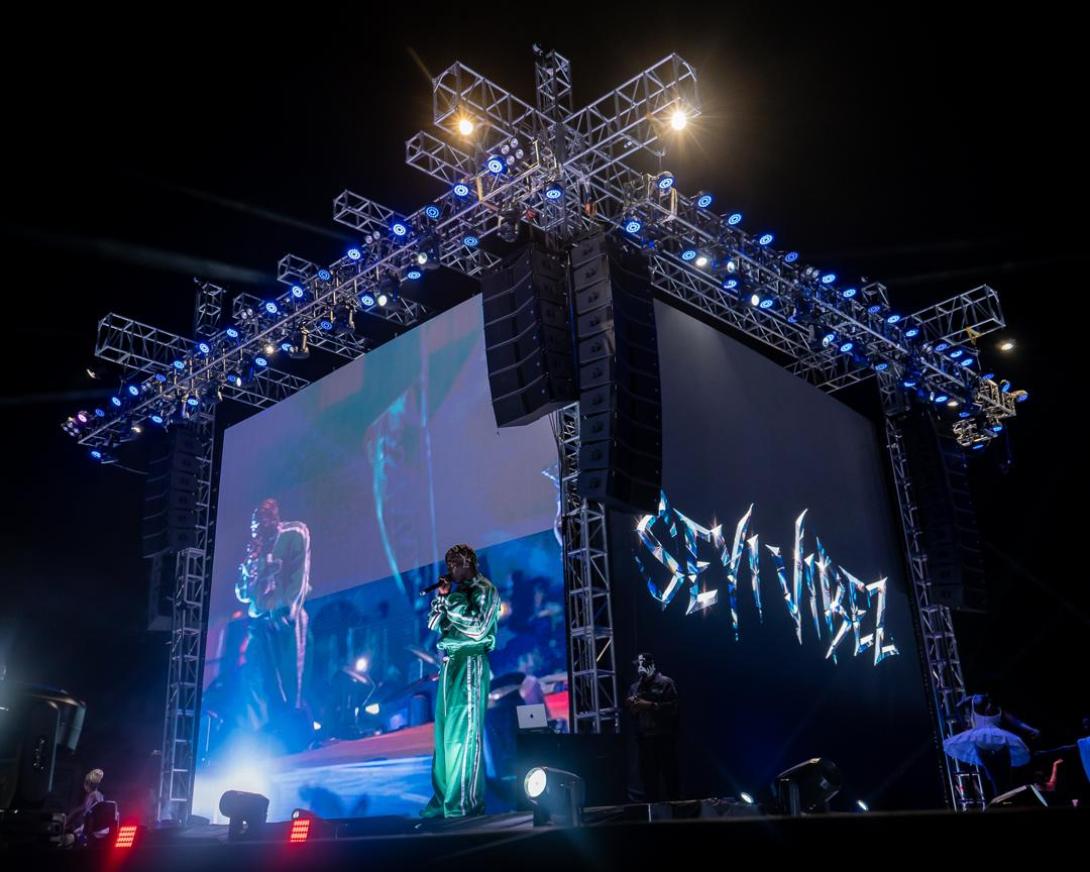
Rema hosted concerts in Lagos and Abuja later that year, as did a smattering of others. Last year, by way of an article, I argued using Rema’s Benin concert as a case study that a significant amount of government support is required to jolt the concert landscape in the country back to health. Last year’s edition of the Greater Lagos Fiesta—formerly known as Lagos Countdown and later One Lagos Fiesta—which was organized by Strike Force, was notably better organized, with better production quality, and featured a dazzling line up of acts, including Wizkid, Burna Boy and Davido. This year, concert culture has received a fresh injection of life with Llona’s nationwide tour, OdumoduBlvck’s Greatest School Tour and now Seyi Vibez’ concert at the 55,000 capacity Tafawa Balewa Stadium. All of these point to a snowball effect, which seems to be gathering momentum.
Strike Force and Verse Live, an immersive events and festival production company, are central players in all of this. As Egbe tells it, the Seyi Vibez concert at TBS was conceived after watching him perform at last year’s Greater Lagos Fiesta. “We started Verse Live to revolutionize how concerts are done in Nigeria,” Adeniji Adedeji, the founder, event producer, and director of Strike Force and one of Verse Live’s founders, tells me. He’s on vacation, winding down after successfully producing Seyi Vibez’ concert. Two of the biggest challenges impeding concert culture in Nigeria are production quality and profitability—circumventing these challenges are central to the company’s vision. Verse Live is run by a team of five executive producers, all of whom are experts in their respective fields and work synergically to bring shows to life: Dayo Ayoade, who handles Business Development, Finance, government relations and policy, and is also a creative director; Nelson Jack, who is in charge of tech and design; Bassey Aniefoik, Brands and Marketing; Nosa, general operations and concert production and Deji Adeniji, event production and direction.
While the company has pulled off illustrious gambits in the past few years, they’re not about to rest on their laurels and already have a slew of plans in the pipeline. “We have bigger plans coming up. We have something called the Future Fest, which is going to revolutionize how people see festivals. We also have the Isimi Lagos Polo Festival coming up,” Adedeji says. Outside of the fanfare of the day, Seyi Vibez’ concert is especially instructive because of how the space was transformed and how the event proceeded without incident. Viewed against the backdrop of the events of the last two years, Seyi Vibez’ TBS concert is emblematic of the breath of change that’s fanning over Nigeria’s live performance landscape and with companies like Strike Force leading the charge, the future of Nigerian concerts looks a bit more exciting.
